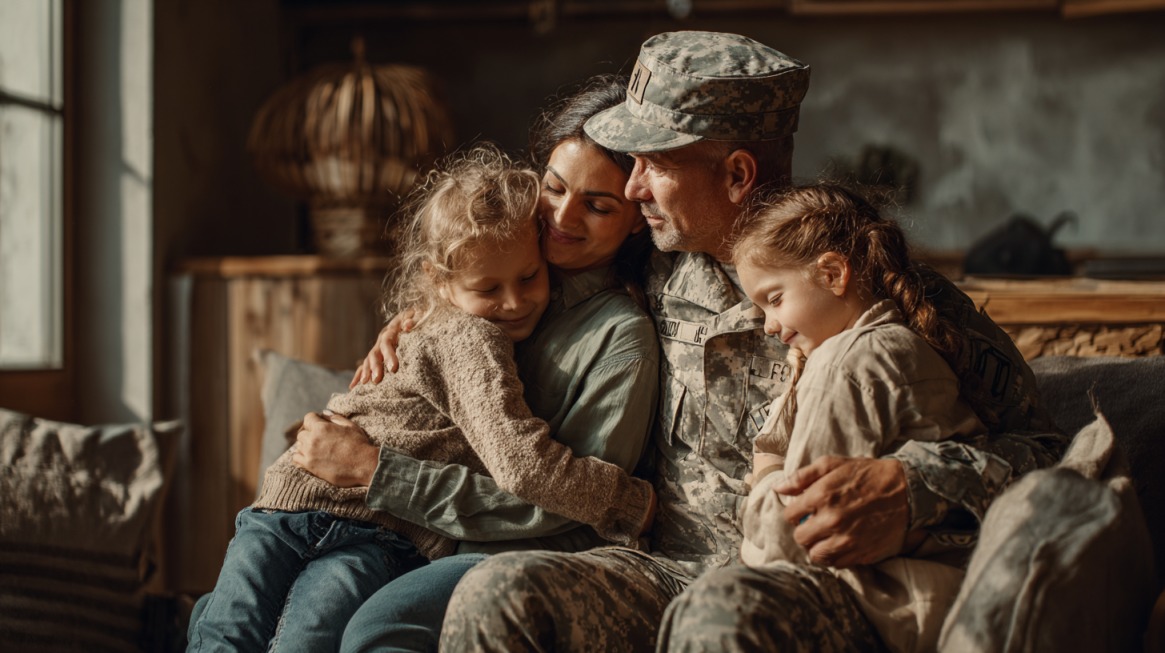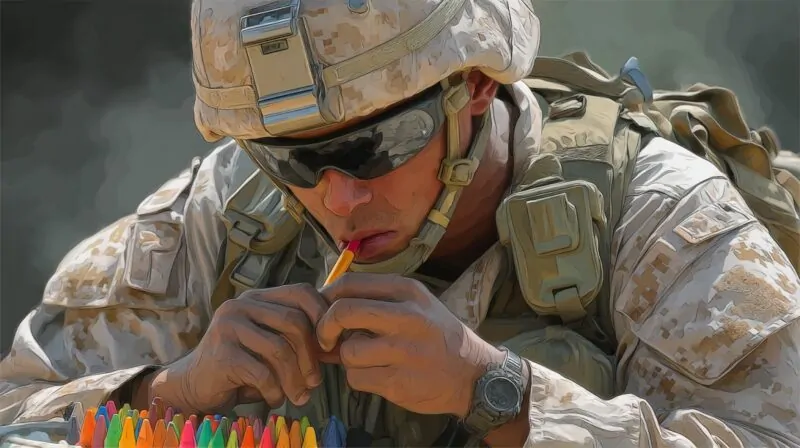Serving in the military for four years provides more than just an honorable title. It opens the door to a wealth of benefits that help veterans transition smoothly into civilian life.
- Education
- Healthcare
- Housing
- Retirement planning
- Financial support
They serve not only as a way to honor the commitment and sacrifices of service members but also as tools to help them build a stable and successful future.
Let us take a look at what you can get after 4 years of military service.
Education Benefits

Education benefits are tailored to provide service members and veterans with the opportunity to advance their knowledge, skills, and career prospects without the stress of overwhelming tuition costs.
One of the most significant benefits is the Post-9/11 GI Bill, which covers several key educational expenses, such as:
- Covers the full cost of in-state tuition at public institutions or a capped amount for private schools and foreign universities.
- Provides financial support for living expenses, calculated based on the location of the school.
- Offers an annual stipend to help cover the cost of textbooks and necessary materials.
These benefits extend beyond traditional college degrees, offering flexibility for various educational pursuits:
- Veterans can pursue a bachelor’s or master’s degree at accredited institutions.
- Includes programs such as automotive repair, welding, and other technical skills.
- Supports professional certifications in fields like project management, healthcare, or IT.
For added convenience, the Post-9/11 GI Bill accommodates both online and in-person learning, ensuring veterans can choose the format that best suits their lifestyles and goals.
- Available in select states for veterans and their dependents.
- Exclusive financial aid for veterans pursuing advanced degrees or specialized fields.
Healthcare Benefits
4 years of military service grants veterans eligibility to enroll in the Veterans Affairs (VA) healthcare system, a program designed to provide comprehensive medical services tailored to the needs of those who served.
Veterans can access a variety of treatments and services through VA medical centers and clinics, which are located nationwide, ensuring accessibility regardless of location.
- Routine medical check-ups, preventive care, and management of chronic illnesses.
- Access to specialists for conditions requiring advanced treatment, such as cardiology, orthopedics, and dermatology.
- Comprehensive mental health care, including treatment for anxiety, PTSD, depression, and other conditions.
Veterans with service-connected conditions such as GERD (gastroesophageal reflux disease), tinnitus, or other chronic issues may receive priority care. These conditions are evaluated for severity, and tailored treatment plans are provided to address specific needs.
- Physical therapy, occupational therapy, and other programs to aid recovery and improve mobility.
- Affordable or no-cost prescriptions for approved medications.
- Vaccinations, screenings, and education to promote overall health.
- Counseling and rehabilitation services for veterans dealing with addiction or dependency issues.
For those whose income or service-connected disabilities do not qualify them for extensive coverage, the VA system still provides affordable healthcare options compared to private providers.
Programs for family counseling may also be available, ensuring that veterans and their loved ones receive the support they need.
Housing Benefits

The program offers veterans a pathway to homeownership through terms that simplify and reduce the financial challenges associated with buying a home.
- Veterans can purchase a home without the need for a traditional down payment, which significantly lowers the initial cost.
- The program provides access to lower interest rates compared to conventional loans, reducing the long-term cost of homeownership.
- Veterans are not required to pay PMI, which saves them substantial monthly costs typically associated with traditional loans.
The VA Home Loan Program also features flexible eligibility requirements, ensuring that a broad range of veterans can qualify.
Additionally, the program facilitates reduced closing costs, further decreasing the upfront financial burden.
- Veterans can refinance existing loans through the program, allowing them to adjust terms or secure lower interest rates when market conditions change.
- The program enables veterans to build equity and financial stability through affordable homeownership.
Retirement and Pension Benefits
Serving in the military for 4 years opens the door to critical retirement and pension benefits that help veterans build long-term financial stability.
The Blended Retirement System (BRS) is a key part of this support, combining traditional pensions with modern retirement savings tools.
For those enrolled in the BRS, the Thrift Savings Plan (TSP) plays a crucial role in retirement planning. After just two years of service, military members are vested in the TSP, allowing them to retain the contributions made by the government.
- The military matches up to 5% of service members’ base pay contributions, creating a robust foundation for savings.
- After two years of service, all government contributions are fully vested, ensuring these funds remain available even after separation.
- The TSP offers some of the lowest administrative costs compared to other retirement plans, ensuring more of the money goes toward growth.
- Participants can choose between traditional or Roth contributions, allowing for pre-tax or tax-free savings strategies.
In addition to the TSP, service members who complete a full military career are eligible for a traditional pension. It provides guaranteed monthly payments, which are calculated based on the number of years served and rank achieved.
- A consistent monthly pension ensures financial security after retirement.
- Veterans can combine their pensions with TSP savings for diversified retirement income streams.
- Service members can also opt for Survivor Benefit Plans (SBPs), providing continued financial support for their families.
Disability Compensation
Military service often brings physical and mental challenges that can leave lasting impacts on service members. Veterans who experience service-connected disabilities may qualify for VA disability compensation, a tax-free financial benefit designed to ease the burden of these conditions.
The level of compensation is determined through a percentage rating system, which evaluates the severity of the condition and its impact on the individual’s ability to function and work.
These conditions can include injuries sustained during active duty, chronic illnesses developed over time, or mental health challenges such as post-traumatic stress disorder (PTSD).
This financial support extends far beyond simple monetary aid. It helps veterans manage the expenses associated with medical treatment, rehabilitation, and necessary lifestyle adjustments. For example, individuals with mobility impairments may use compensation to modify their homes or vehicles for accessibility.
Those with higher disability ratings may also access additional resources, including grants for specially adapted housing or tailored equipment to support daily life.
Transition Assistance

The Transition Assistance Program (TAP) plays a critical role in helping veterans adjust to civilian life after military service.
It provides structured support through a combination of workshops, counseling, and job training designed to prepare service members for success in various fields.
- These sessions address the challenges of moving into civilian employment, offering actionable advice and emotional support.
- Veterans receive help crafting resumes that effectively highlight their military skills and experiences in a way that resonates with civilian employers.
- TAP provides mock interview sessions, tips for answering common questions, and guidance on professional presentation to boost confidence.
- Veterans are introduced to job boards, networking opportunities, and hiring events tailored to their expertise.
For veterans seeking to further their education, TAP also offers:
- Comprehensive advice on using education benefits for degrees, certifications, or vocational training.
- Assistance in choosing programs and institutions that align with personal and professional goals.
Entrepreneurial veterans can benefit from additional resources, such as:
- Access to funding programs designed for veteran-owned businesses.
- Workshops and mentorship programs focused on developing the skills needed to launch and manage a successful business.
Family Benefits

Military service extends its benefits to the immediate family members of service members, providing critical support in multiple aspects of life.
One of the most significant supports is access to healthcare through programs like TRICARE. The benefit ensures that families can continue receiving essential medical coverage even after separation, depending on the eligibility of the service member.
- Access to affordable primary care and specialist services
- Coverage for prescriptions and preventive care
- Options for mental health support for family members
Education is another area where family members can benefit. Service members have the option to transfer unused GI Bill benefits to a spouse or child.
- Cover tuition costs for college or vocational training
- Provide funds for books, supplies, and housing during studies
- Open opportunities for personal and professional growth
Housing assistance is also available to families through VA-backed loans, contributing significantly to long-term stability.
- Favorable terms, including no down payment requirements
- Competitive interest rates for affordable monthly payments
- Flexibility to refinance or improve existing home loans
VA Life Insurance Programs
Veterans Affairs Life Insurance (VALife) serves as a dependable option for those navigating life after active duty, especially individuals managing health conditions connected to their time in uniform.
VALife delivers a whole life insurance option that guarantees coverage for veterans with service-connected disabilities. Eligibility is not influenced by the severity of the condition. Acceptance is automatic.
No medical screenings are required, which helps veterans who might face barriers when applying through traditional insurers.

- Guaranteed acceptance for any eligible veteran with a service-connected condition.
- Coverage up to $40,000, with premiums calculated based on age and the chosen amount.
- Lifelong protection, provided premiums remain current.
- User-friendly online portal through VA.gov for applications, updates, and document access.
Private companies often impose limits or reject applications outright for those with chronic medical issues. VALife eliminates that obstacle.
It delivers security and confidence to veterans who want assurance that their families will not be financially burdened after their passing.
Burial and Memorial Benefits
Recognition of military service does not stop after a veteran’s final day. It continues through programs designed to honor that service and assist loved ones during difficult periods.
VA burial and memorial benefits extend this recognition in dignified and practical ways.
Eligible individuals may receive burial in a VA national cemetery. No costs apply to the gravesite, headstone placement, or maintenance.
- A headstone, marker, or medallion that honors the veteran’s contribution.
- A Presidential Memorial Certificate, signed by the President, acknowledging military service.
- Financial assistance to help cover burial expenses in qualifying cases.
These benefits bring comfort during emotional times. They preserve the memory of service and ensure each veteran receives respectful and honorable treatment in death, without placing additional pressure on families.
Vocational Rehabilitation and Employment (VR&E) Services
@cck_law VR&E stands for Veteran Readiness and Employment (formerly Vocational Rehabilitation and Employment). VR&E is a VA program that helps veterans with service-connected disabilities explore employment opportunities or education and training. Learn what this program does and how to qualify! #vocrehab #veteranreadiness #veteranemployment #vadisability #serviceconnectedcondition #veteransoftiktok #vaclaims #veteransbenefits #vadisabilityhelp #vadisabilitylawyer ♬ Natural Emotions – Muspace Lofi
Living with a service-connected disability can affect career plans, income potential, and personal confidence.
Veteran Readiness and Employment (VR&E), authorized under Chapter 31, provides customized support to help veterans succeed professionally or gain independence when working is not currently possible.
- Career counseling and skills assessments that help match veterans with appropriate roles.
- Financial support for education or certification programs aligned with chosen career paths.
- Job placement assistance through resume development, coaching, and employer connections.
- Self-employment training that includes help with writing business plans and sourcing funding opportunities.
- Independent living support for veterans who need daily life before they can pursue employment.
Each service is designed with long-term goals in mind. Whether pursuing traditional employment or business ownership, veterans receive guidance tailored to their ambitions and capabilities.
VA Healthcare App and Digital Tools
Convenience and accessibility now play a major role in how veterans interact with their healthcare system.
The VA Health and Benefits app delivers streamlined access to services that were once only available through in-person visits or phone calls.
- Order prescription refills and monitor medication history.
- Communicate securely with VA health professionals.
- Book, adjust, or cancel appointments with a few taps.
- Download VA letters, track benefit claims, and review health records.
- Receive push notifications about claim statuses, appointments, and available benefits.
Technology enhances personal agency. With just a mobile device, veterans are able to manage care, respond to updates, and access essential VA resources—on their own schedule.
The Bottom Line
After 4 years of military service, veterans are equipped with a wide range of benefits that support their transition to civilian life.
These include education opportunities, healthcare access, housing assistance, retirement planning, disability compensation, and family support.
Each benefit is designed to acknowledge the sacrifices made during service while providing tools to build a secure and successful future.
Sources
- US Department of Veteran Affairs – Post-9/11 GI Bill (Chapter 33)
- Military Pay – Blended Retirement
- Thrift Savings Plan
- Defense Finance and Accounting Service – The Survivor Benefit Plan (SBP)
- US Department of Labor – Transition Assistance Program
- TRICARE
- Benefits.va.gov – Veteran Readiness and Employment (VR&E)
- NextGov – VA is Working to Add New Features to its Health and Benefits App
Related Posts:
- Are Soldiers Spending Too Much Time on After Action Reports?
- Impact of Off-Duty Injuries on Military Benefits -…
- How Long Do You Have To Be In The National Guard To…
- Cox Military Discount - A Small Thank You for Your Service
- Inside the Service Academy Summer Programs: What You…
- How Much Does Military Service Add To Social Security?







